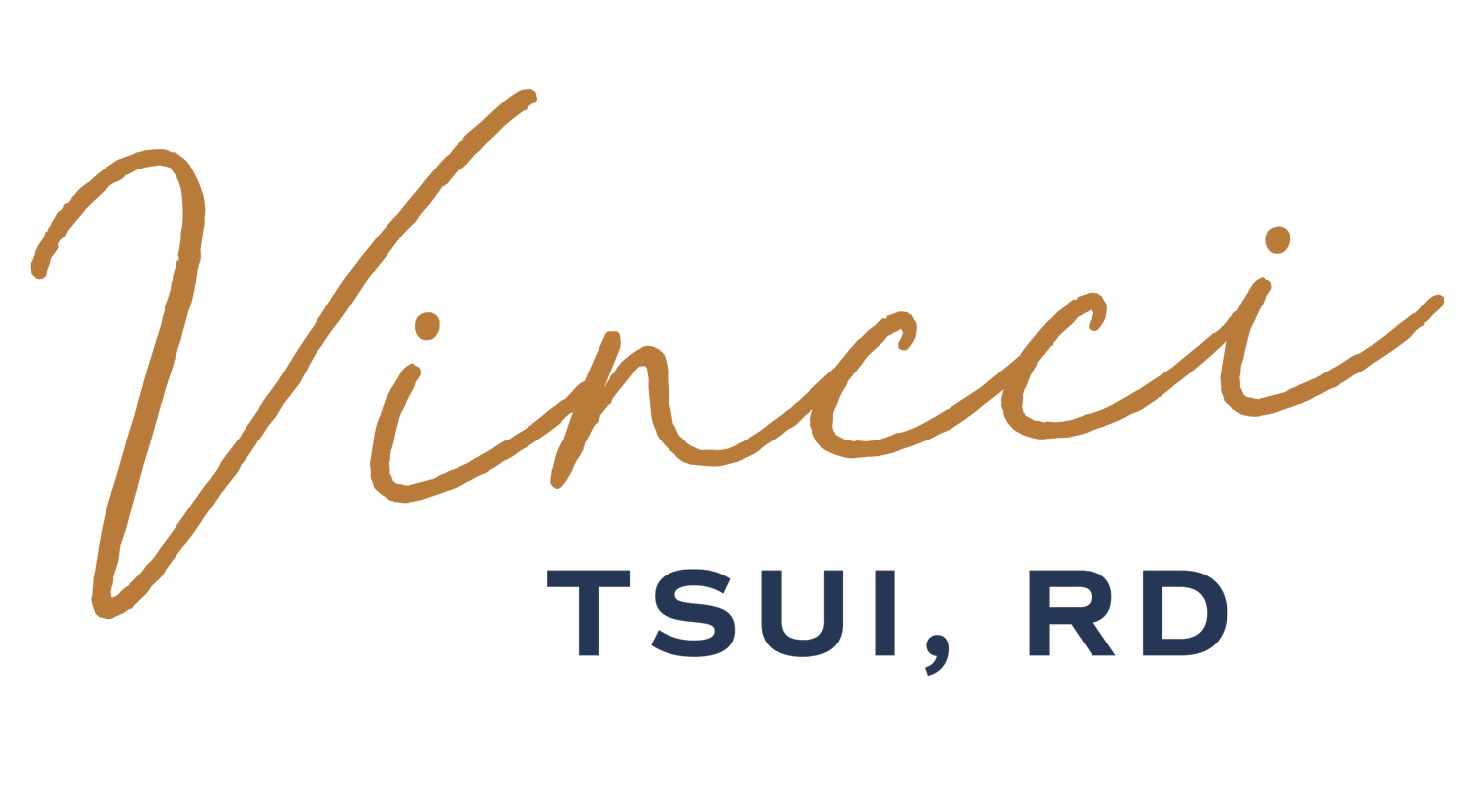Two Truths & A Lie: Intuitive Eating Edition
Have you heard of the game Two Truths and a Lie? Snoop & Martha have played it, but they reversed it and did two lies and a truth. Basically, it’s a party game where you share three statements about yourself – two of the statements are true, and one of them is not; everyone else has to guess which one is a lie.
I thought it’d be fun to get to know our new friend, Intuitive Eating, a little better by playing the same game. Ready? Here are the three statements:
Intuitive Eating will help you get to your healthy weight.
Intuitive Eating doesn’t always come naturally.
Intuitive eaters only eat when they’re hungry, and stop when they’re full.
Got your answer? Read on and see if you’re right!
1. Intuitive Eating will help you get to your healthy weight.
True. This is a tricky one – notice the wording; it’s “your healthy weight”, not “ideal weight” or “healthy BMI”.
Intuitive Eating is about tuning into your body and inner wisdom, and eating in a way that meets your unique physical and emotional needs. When you are eating in a way that honours your individual health needs, your body will naturally settle at its healthy weight, which may be higher, lower, or the same as your current weight.
“Healthy weight” is the term used by Green Mountain at Fox Run to describe this concept, while I’ve also heard the terms “best weight” or “sanity set point” – no matter what term you use, the definition is, the weight where your body settles when you are living a healthy lifestyle that you enjoy.
“Your healthy weight where your body settles when you’re living a healthy lifestyle that you enjoy.”
2. Intuitive Eating doesn’t always come naturally.
True. This is a tricky one too! We are all born natural intuitive eaters. If you’ve been around a baby, you’ve probably seen it before – they make it known when they’re hungry, and stop when they’re full.
However, from the second that we’re born, we’re exposed to a never-ending stream of messages about food, eating and our bodies that influence our eating habits and body image over time. Unfortunately, most of the messages that we hear nowadays perpetuate fatphobia, which negatively impacts everyone – fat people are told that they should be working toward the thin ideal, and thin people are told that they should do everything they can to not be fat. At the same time, “gurus” have popped up everywhere promising that they can help us achieve this thin ideal in a myriad of ways, reinforcing the idea that we should trust the “experts” instead of trusting our own bodies and inner wisdom.
It’s no wonder that when we are reintroduced to the idea of Intuitive Eating that it feels so unnatural and foreign! We have to unlearn so many beliefs and behaviours that are still being taught to us every single day. This can make your journey difficult and full of setbacks, so you may find it helpful to surround yourself with the right support, whether it’s your healthcare team, family, friends or even a support group online.
“#IntuitiveEating doesn’t always come naturally—have to unlearn #diet culture beliefs & behaviours.”
3. Intuitive eaters only eat when they’re hungry, and stop when they’re full.
Since the first two statements were truths, it means this statement is false.
One of the core concepts in Intuitive Eating is tuning into your hunger/fullness cues and honouring your hunger. With our busy lives and schedules, however, it’s not always realistic to eat what you want, when you want.
Sometimes you might find that you eat a little extra at a meal, or eat something you don’t necessarily want, just because you know that you won’t be able to eat later on, and you don’t want to be uncomfortably hungry.
Sometimes you decide that feeding your “emotional hunger” is more important and satisfying, even when you’re not physically hungry.
At the end of the day, Intuitive Eating is flexible, and what your body needs is going to change from day to day, moment to moment. Trying to only eat when you’re hungry and stop when you’re full runs the risk of turning into another “food rule” or “diet”.
“#IntuitiveEating is flexible! What your body needs is going to change from moment to moment.”
How did you fare? What are some of the other truths and lies that you’ve encountered on your Intuitive Eating journey?
